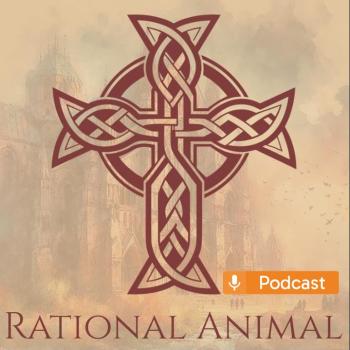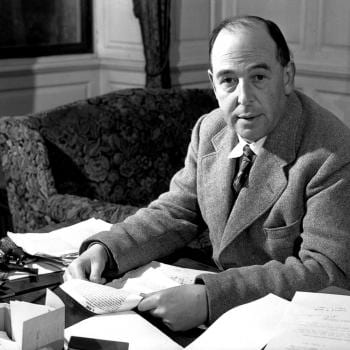As a Catholic whose ongoing study and reflection on discipleship has led him to political anarchism (of a particular type, mind you, though there is no space to get into the details here), the question of voting has been one that I have wrestled with for some time now. My own personal position does not feel particularly settled, nor do I think it is bound to be, as I think context is crucial to the question of how much a Christian should cooperate with the state and its practices. Thus, my own decision about whether or not to vote in a given election is bound to look differently in various circumstances.
But nevertheless I am convinced that most U.S. Catholics and most Christians have it all wrong when it comes to voting, and sometimes that includes our own U.S. bishops. Most of these Catholics get it all wrong because they buy into the American myth that one must vote in order to be a “good citizen,” and the one who opts not to vote is demonized for this or that reason: for being irresponsible, for being ungrateful to those who gave their lives so that Americans can enjoy the “right” to vote, or some such variation on these themes.
The U.S. bishops have traditionally bought into this myth as well, insisting in their periodic document Faithful Citizenship that U.S. Catholics have a “duty” to vote and, further, that this duty is linked with their faith. Over the years I have become more and more uncomfortable with this sort of claim as I have grown to see much value in the (anti-)practice of principled non-voting, especially when the principles involved are theological ones.
Over the last year or so, as the build-up to yet another election year has grown, and memories of the last media circus and election year battles are still fresh in our minds, I had been hoping that the bishops’ statement on “faithful citizenship” would quietly omit references to the “Catholic’s duty to vote.” Surely the bishops would have learned from the Church’s election year battles — battles which, frankly, have torn the Church apart — and would not even think to suggest that Catholics have a “duty” to participate in such divisive, hateful behavior. Maybe they would even come to express the virtue of “sitting this one out” as a valid and praiseworthy expression of one’s “faithful citizenship.”
My hopes were not exactly fulfilled. In some ways they were, but in others, quite the opposite.
Much of the bishops’ new document (PDF) on voting is quite good and provides very clear criteria for those who plan on taking part in this aspect of the political process. The bishops even mention the possibility of choosing not to vote, which they say is a legitimate option when all candidates support intrinsic evil in one way or another:
36. When all candidates hold a position in favor of an intrinsic evil, the conscientious voter faces a dilemma. The voter may decide to take the extraordinary step of not voting for any candidate or, after careful deliberation, may decide to vote for the candidate deemed less likely to advance such a morally flawed position and more likely to pursue other authentic human goods.
But after saying this, the bishops make a startling statement that takes the notion of a Catholic’s “duty” to vote and steps it up a notch by insisting that the very casting of an electoral vote “also may affect the individual’s salvation”:
38. It is important to be clear that the political choices faced by citizens not only have an impact on general peace and prosperity but also may affect the individual’s salvation. Similarly, the kinds of laws and policies supported by public officials affect their spiritual well-being. Pope Benedict XVI, in his recent reflection on the Eucharist as “the sacrament of charity,” challenged all of us to adopt what he calls “a Eucharistic form of life.” This means that the redeeming love we encounter in the Eucharist should shape our thoughts, our words, and our decisions, including those that pertain to the social order.
This kind of statement, in the middle of what is essentially a list of criteria on “how to vote,” is unfortunate and potentially misleading. Of course politics and salvation have everything to do with one another. After a long history of the popular Catholic mentality of separating the political from the spiritual, liberation theologians (and others) reminded the Church that salvation cannot be divorced from politics. This insight made its way into modern Catholic social teaching, including papal documents of John Paul II and Benedict XVI, under the concept of “integral liberation,” i.e. the notion that salvation, in its complete sense, involves the fullness of liberation, including its spiritual aspects (liberation from sin) and its socio-political aspects (liberation from all that threatens human life and well-being).
With this Catholic principle in mind, that our political orientation, stances, decisions, and involvements do have everything to do with our salvation, we must be careful not to reduce politics to voting, as the bishops seem to do here by placing this statement about “salvation” in the middle of a voting guide. Voting is but one part of our entire political lives, and it could be argued that voting is in fact one of the least important aspects of our political lives. Indeed, this is so because we cannot divide our lives into different compartments, separating the religious aspects of our lives, for example, from everything else. In much the same way, the whole of our lives involves the political, not in the sense of political campaigns and projects, but the way we envision human life and society to be ordered. Therefore, our chosen state in life, the things we buy, the values we hold, our choice of career… everything about our lives is political. Voting is but one very minor part of the political nature of all human life and activity.
The problem with equating the act of voting with politics as such can be seen clearly in the fact that, for Catholics, the options that present themselves come election time are limiting. The U.S. bishops have rightly pointed out in the past that when it comes to partisan politics, Catholics should feel “politically homeless.” During the last presidential election, I chose to vote for pragmatic reasons. I felt awful doing so. It occurred to me much later that no Catholic should have been comfortable voting four years ago, and truly no Catholic should have felt good or proud of the particular candidate he or she chose if he or she was truly approaching the voting booth as a Catholic who was making a sincere effort to bring the fullness of Catholicism to bear on that decision.
If it is the case that Catholics in the United States are truly “politically homeless” as the bishops have said, and if I am right that Catholics can never be satisfied or proud of who they do vote for, I find it strange that the bishops would reduce the Catholic understanding of political involvement to this simple action that is, ultimately, so restrictive and by which we should never feel satisfied. And if salvation and politics have everything to do with one another (and they do), the fact that bishops seem to suggest that voting is the way toward this salvation, or can even really affect our salvation in any profound sense, is utterly baffling.
To argue that it does seems elevate voting’s importance both politically and theologically. The political reasons seem, to me at least, to be quite obvious. Theologically, the matter was described well by the New Testament scholar and Episcopal priest A.K.M. Adam a couple years back at the annual gathering of the Ekklesia Project in a lecture entitled “The Strong Right Arm That Holds for Peace: Godliness as an Alternative to Empire” (available here and also as a PDF or mp3). In that lecture, Adam argued that imperial America (the term “imperial America” is, of course, less controversial now than it was ten or twenty years ago) has its own set of myths and practices in which its citizens live, move, and have their being and which take on an unspoken sacred quality.
In the name of realism, in the name of deference to honoring those who bear the effects of war (effects that our everyday language reveals that we regard as a sacrifice), strident voices demand that Christians profess their loyalty to a national ensign, and observe the festivals that the government establishes as though they were feasts of holy martyrs. The combined interests and sensitivities – often innocent, often commendable – of state power, of patriotic citizens, of injured families, and of corporate advantage converge in an ambiance I will call Sacramerica. In Sacramerica, the national pride of the United States blossoms into a displaced messianic hope that subordinates the God of the Decalogue to the sentimental consolations and pragmatic policy interests of a vast congregation of baseball fans, apple-pie eaters, and fireworks admirers.
Included in this culture of “Sacramerica” are a set of what Adam calls signifing practices, “ways that people express important claims about themselves and the world not only by talking or writing, but by the ways they behave, by the ways they interact with others.” Some of these practices can be quite conscious, he says, but
[m]ore often, though, we participate in signification less self-consciously, more by elective affiliation, with much less formal expectations and obligations; in so doing, we float along with the significations made available by mass culture and socially-dominant institutions.
Adam goes on to insist that Christians should learn to recognize the signifying practices of “Sacramerica” which include the state’s insistence that
one must vote, that liberal democracy constitutes a political order unexceptionably superior to other alternatives, that the way to resolve all conflicts is to hold a vote of some sort, hence that being right in the world should be correlative to winning….
And finally, Christians should not only recognize the myths and practices of Sacramerica but should actively resist their “misplaced Messianic hopes” through another set of signifying practices rooted in imaginative discipleship:
In order resist the signifying system of Sacramerica, I propose that we need to begin the work, the practice, of imagining our discipleship as an antithetical signifying practice, a practice of living in a way that throws Sacramerica off-step, out of balance.
Adam suggests not voting as one way to resist the practices of Sacramerica. The state and its mythos tell us that our salvation is bound up in democracy and the electoral process. Our Church leaders seem to be telling us the same thing. At a time in history when the candidates and the process that produces them seem to be devolving into a parody of itself, in an election that will undoubtedly give us nothing but options in which choosing one or the other will involve backing persons and programs that openly and loudly defend the willful, demonic defacing of human life — the very image of God — through abortion, war, and torture, shouldn’t we give up on even suggesting that our salvation “might” depend upon this laughable electoral ritual, that anything about it might salvific?
Yes, our salvation as Christians and as human beings is undeniably a political reality. And do not misunderstand me: voting can play a role in the way we practice our discipleship politically. The way we vote, if we vote, does have significance. But perhaps our salvation — our integral liberation — is bound up in the possibility of the counter-cultural option not to vote rather than playing the empire’s game — yet again, like clockwork — by throwing up our hands and throwing in our lot with inevitably sub-par candidates and telling our fellow members of the Body of Christ that “their salvation depends” on voting for the “right” person.
Thanks, bishops, for the permission. If my salvation depends on it, I’ll sit this one out.
















